On August 4, 2020, chemicals exploded in a Beirut port warehouse killing 218 people and causing devastation across much of the city. The blast came as an endpoint for me and for Lebanon.
Even before the explosion, the country was in a very bad situation on all levels, particularly economically and socially. I was very desperate and felt that I needed to leave Lebanon as there seemed to be only two possibilities for my future if I stayed: the first one, death and the second one, failure.
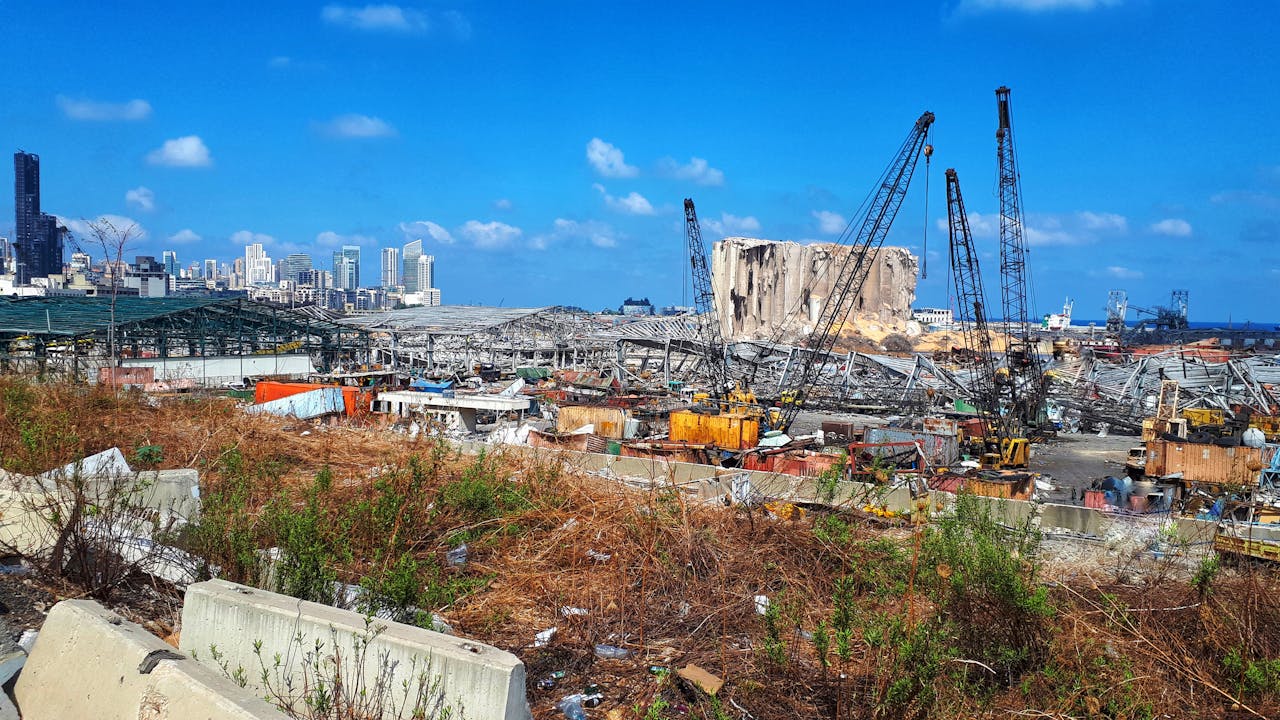
The explosion at Beirut’s port killed at least 218 people, wounded 7000, and caused an estimated USD15 billion in damage to buildings.
© iStock/Sandro EidI am an engineer and work for the International Labour Organization (ILO) in Beirut, monitoring projects for our Employment-Intensive Investment Programme (EIIP) across Lebanon.
After the blast, I stayed at home pondering my future. But then work called and I was put in charge of helping people clear rubble in Achrafieh, a Beirut neighbourhood. Once we had completed our work there, we moved on to other areas of the city. Bit by bit, I started to regain some hope.
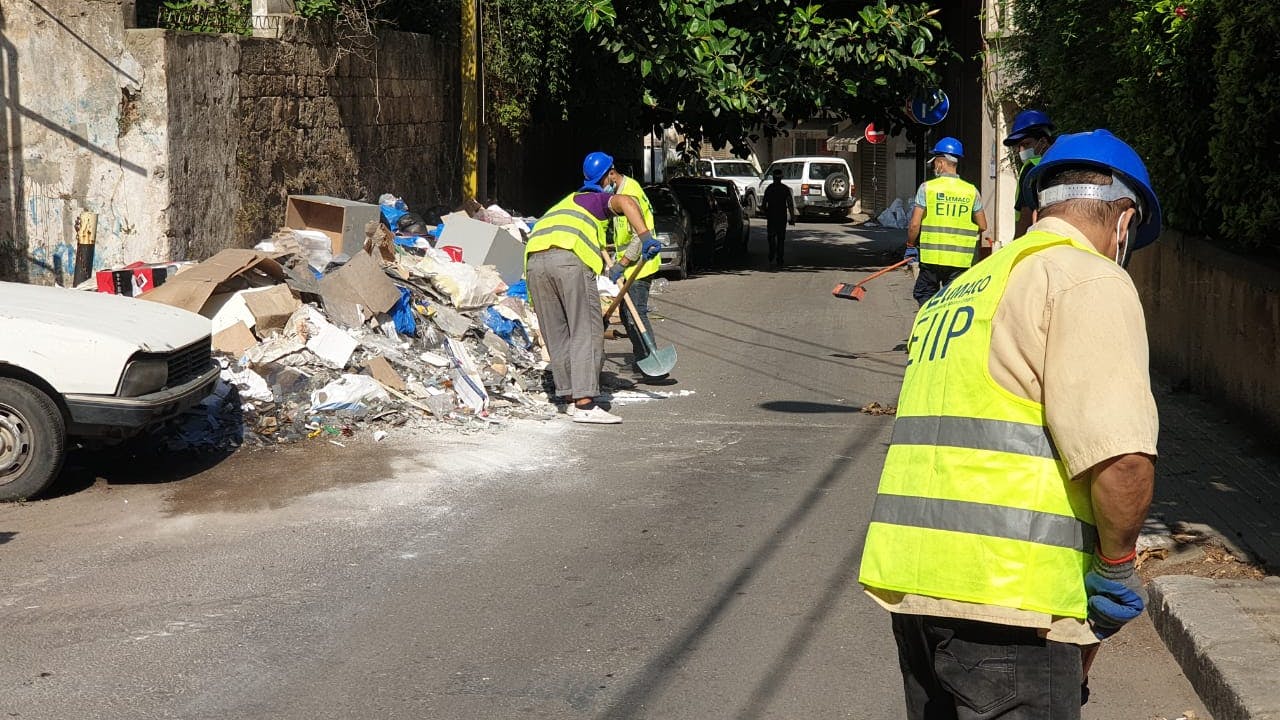
Workers clear rubble on a Beirut city street.
© Hani BaltajiWe were then asked to rehabilitate some buildings in Beirut, including a municipal police station in Karantina, a neighborhood in northwestern Beirut. It was like a small example of the country as a whole. It was almost totally destroyed and the people working in the building were facing a very bad situation, with many economic and social problems.
Nearly all the windows, doors, lights and ceilings were damaged, as well as the electrical and water systems. The second floor was partially inaccessible due to a wall and part of the roof having fallen down.
It was a big job. Even the workers who were recruited were not very motivated. So, it was a challenge and a risk for me to be on this project because if it failed it would affect our reputation. But I felt that I needed to act. We couldn’t stay at home just thinking and being pessimistic.
I felt that I needed to act. We couldn’t stay at home just being pessimistic.

My job was split between two main roles.
The first one was the social monitoring of the project. I ensured that the recruitment process was transparent, that we were hiring both female and male workers, as well as people with disabilities. It was also my job to check working conditions. This covered everything including working hours, whether all the necessary safety measures were in place, that they had all the safety and personal protective equipment they needed, and that the contractor was paying them regularly. If any problems arose, they could talk about them with me, so I could resolve any issues that came up.
My second role was to monitor the quality of the technical work and to ensure that the contractor abided by the architectural drawings and design. This included consulting with the director of the police station, the colonel, and other police officers. If they had comments or suggestions, it was up to me to find a solution to satisfy their requests.
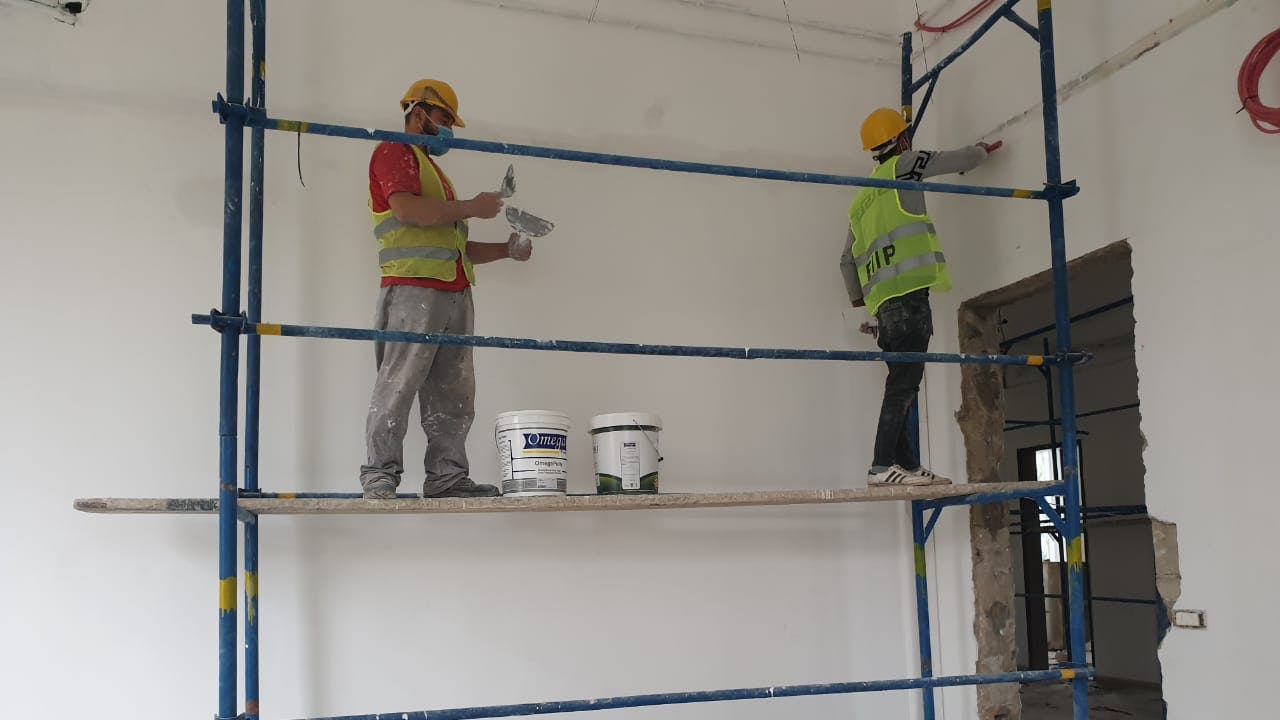
Entire walls had fallen in on the second floor and had to be re-built.
© Hani BaltajiAnd what happened during this project? Many workers’ mentality changed. They said that they didn't know that they could have a decent job, that they had rights.
They saw that the jobs were organized and that there were rules. They had to sign a contract before starting their job. They learned about their rights beforehand and were trained on safety measures. It made them feel special.
They expected to be a few days, maybe one or two weeks on the job, without any organization, doing random things, without any safety measures, but when they saw that this job was very different from the ones they were used to, they were very happy. They worked from their hearts. They were trying to provide the best work ever.
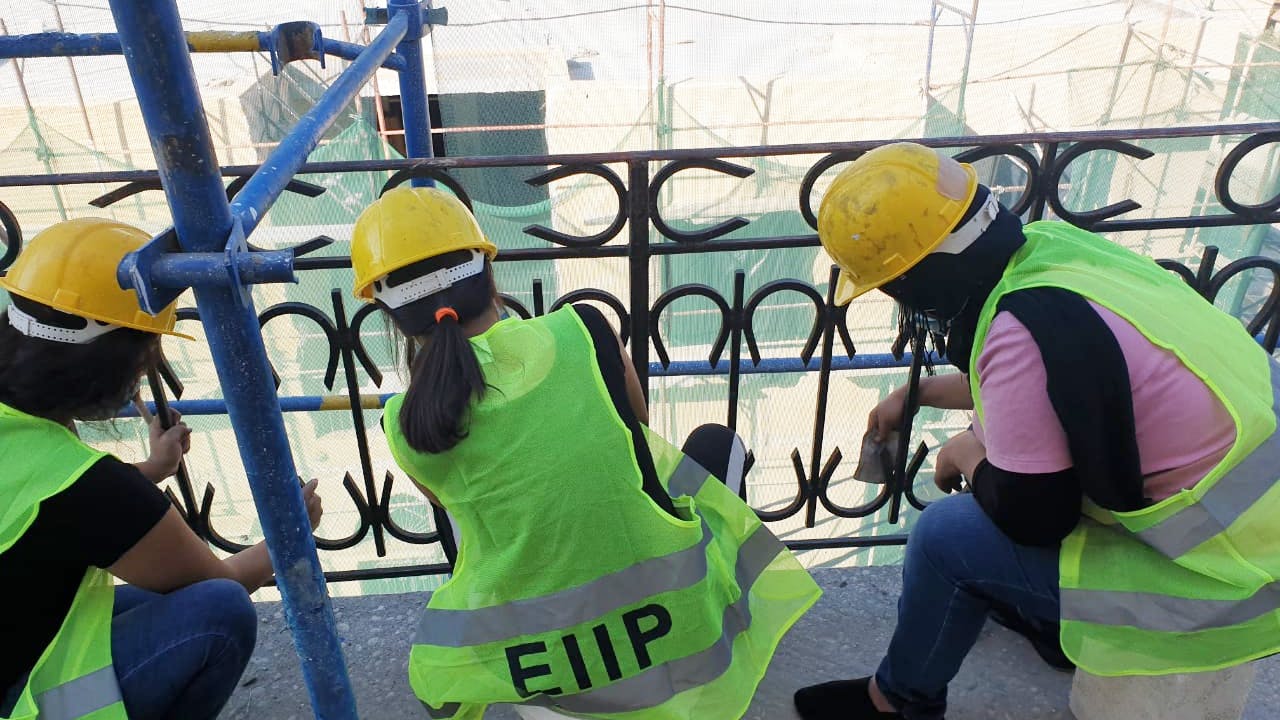
Safety and health were a priority for workers on site.
© Hani BaltajiMy mentality changed too, especially my view of women, it changed a lot, 180 degrees! It was already beginning to change from previous projects. I didn’t expect to see that women could do a better job than men.
Many of these women had not been given a chance to show what they were capable of. In Lebanon, many women are afraid to work with men. Here they felt safe to carry out their work. We always tried to prevent any cases of harassment and it never happened. They had rights and they were paid the same as the men.
In addition, they were hired to perform skilled jobs. They received training. Some women worked in painting, in plastering, in tiling and fixing false ceilings. They were performing skilled tasks that traditionally men perform.
The result of this is that they felt very happy. They felt proud and it helped them to find other jobs. Recently at the official inauguration of the police station, one woman told me that she's now working elsewhere in a skilled job and she learned this skill from our project.
We also hired five workers with disabilities. Before they started their work, we identified the tasks that would best suit them. They performed well and the quality of their work was excellent.
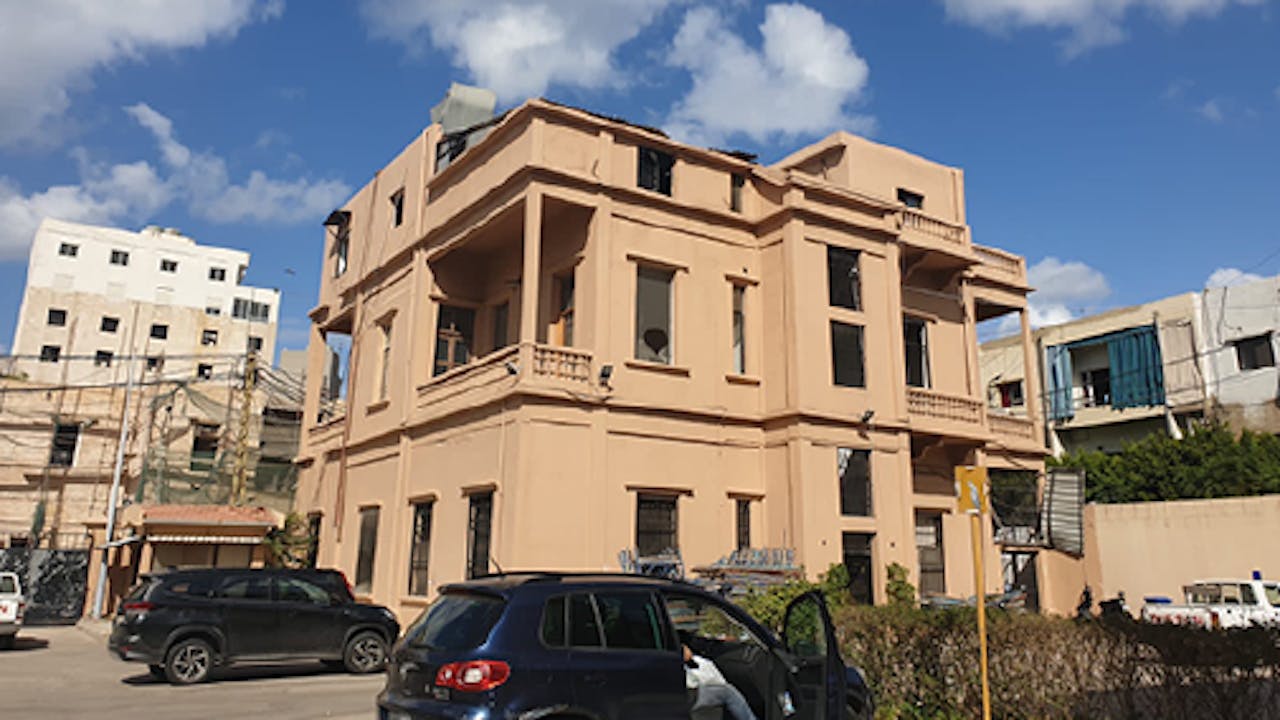
The municipal police building in Karantina before the rehabilitation work. Although the building was still standing, there was extensive structural damage to the roof and internal walls, the windows were shattered, and the electrics and water pipes weren’t functioning.
© Mohammad Bitar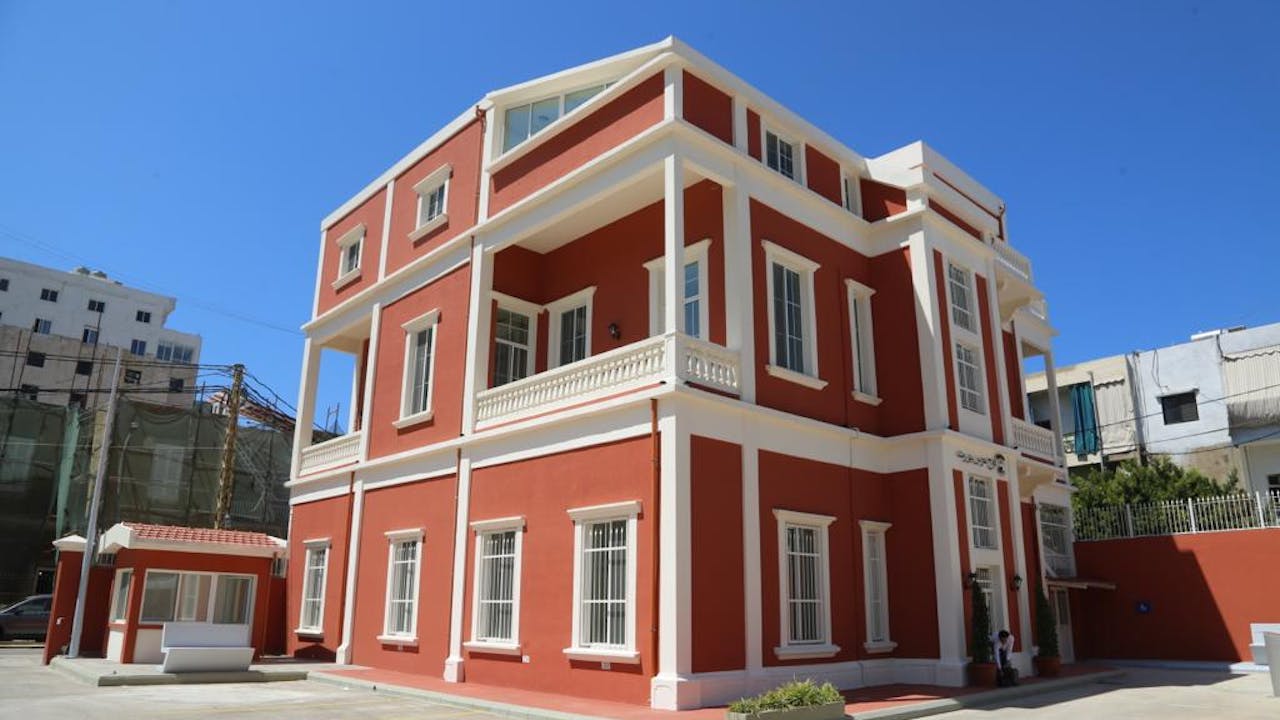
The municipal police building after the rehabilitation work was completed.
© Mohammad BitarI am very, very happy because we rehabilitated a building that was destroyed, and I didn't expect that the result would be as good as it is. I am very proud and I am happy that those who worked on the project are finding it easier now to find other jobs.
It was the diversity of the people involved in this project that made it so special: male and female workers, workers with disabilities, plus the contributions of the local municipality, the police, and the contractor. I think this is why the project has been such a success.
I no longer want to leave Lebanon. I saw that we can change even the most difficult situation and make things better.

The pessimistic side of me isn’t prevailing like it was at the time of the blast. I no longer want to leave Lebanon. I saw that we can change even the most difficult situation and make things better.
We can improve, we can fix things, and we can help people. We can provide people with opportunities to learn new skills; we can also help people whose buildings have been damaged.
We made some very positive impacts and it ended with a successful story. I hope that the future of this country will also be a story of success.
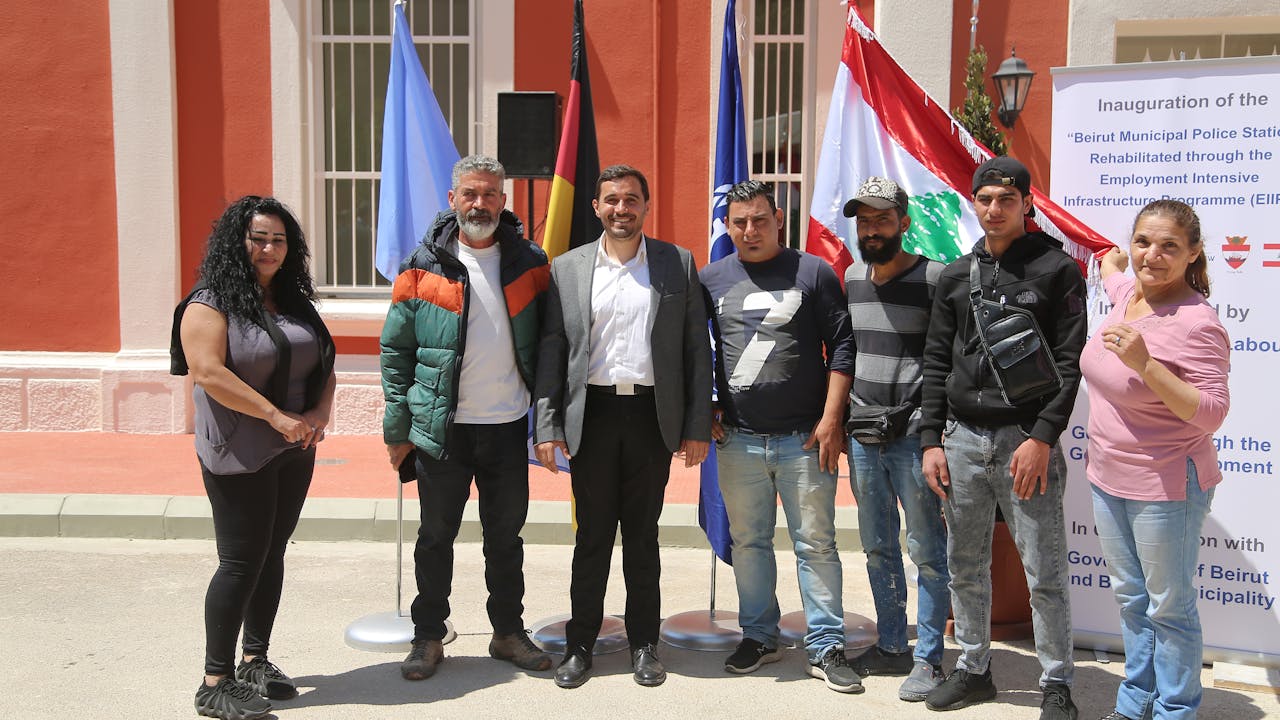
Some of the workers, foremen and the contractor, Mohamad Tabbaja, gather for the inauguration of the municipal police building.
© Mohammad Bitar